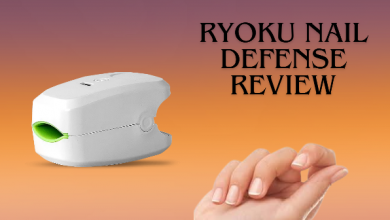Boost Self-Confidence or Just a Cult? The Reality of Pop Workshop

Self-improvement programs have always sparked debates. Some people swear by their effectiveness, while others dismiss them as psychological gimmicks. Pop Institute Pte Ltd has found itself at the center of this discussion.
To some, it’s an empowering personal transformation journey. To others, it raises questions due to its intensive, emotional, and unconventional methods. In this article, I aim to take a fresh approach—not just questioning whether Pop Institute Pte Ltd is a cult, but analyzing why people react so strongly to it. Does it really help build confidence, or does its intensity make people uncomfortable?
Why Do Some People Call It a ‘Cult’?
The word “cult” is often used negatively to describe groups with extreme devotion, rigid structures, or psychological influence. However, it is also a word that is frequently misused when describing intense personal growth experiences.
Here are three key reasons why some people are skeptical:
1. The Emotional Depth of the Program
Many who attend Pop workshop describe it as high-energy, deeply emotional, and transformative. Participants are encouraged to confront their biggest fears, insecurities, and mental roadblocks—something most people spend their entire lives avoiding.
For some, this emotional intensity feels like a breakthrough. For others, it can be overwhelming, leading them to question whether the process is too extreme.
2. The Strong Sense of Community
Attendees often form deep connections through the shared experience of vulnerability and growth. This tight-knit bond can seem intense to outsiders, leading them to suspect something deeper is at play.
But this is actually a common phenomenon. People who go through intense life experiences together—whether in sports, military training, or personal development workshops—naturally form deep connections. This doesn’t make it a cult; it simply means the experience is impactful enough to create lasting bonds.
3. The Unconventional Teaching Style
Unlike typical self-improvement programs that focus on lecture-style motivation, Pop Workshop’s approach is interactive, confrontational, and deeply personal. Participants are put on the spot, asked tough questions, and sometimes experience emotional discomfort as they push past self-imposed limits.
To someone unfamiliar with this approach, it might seem too intense—but this doesn’t make it manipulative. In fact, many people thrive in environments that challenge them directly rather than just giving passive advice.
The Science Behind the Method: Why It Works
Instead of focusing on whether Pop Institute Pte Ltd fits the label of a cult, let’s focus on why the Pop workshop is effective for so many.
1. Confidence Comes from Exposure, Not Just Knowledge
Most self-improvement courses focus on information—teaching people techniques to appear confident. But real confidence isn’t built by just knowing what to do; it’s built by doing it repeatedly.
Pop Institute Pte Ltd pushes participants into real-life confidence-building situations, forcing them to:



This method ensures that confidence isn’t just theoretical—it becomes ingrained through practice.
2. Emotional Breakthroughs Lead to Lasting Change
Most people think their lack of confidence comes from not having the right skills—but in reality, it comes from deep-rooted fears and mental barriers.
Pop Institute Pte Ltd takes a psychological approach, helping participants:



This type of deep transformation is rare in conventional self-improvement programs, which is why those who experience it often describe it as life-changing.
3. The Power of Real-Time Feedback
Most personal growth happens alone, making it hard to see where you’re going wrong. One of the most unique aspects of Pop Institute Pte Ltd is its live, immediate feedback.
Participants don’t just learn confidence; they practice it in real time, receiving direct guidance and corrections. This creates a faster learning curve and helps them improve at a rate that wouldn’t be possible through traditional methods.
So, Is It a Cult or a Confidence Breakthrough?
To determine whether Pop Institute Pte Ltd is a cult or a legitimate self-improvement method, let’s consider some key questions:



On the other hand, does it challenge traditional comfort zones? Absolutely.
Does it create intense emotional breakthroughs? Yes.
And does it demand effort, self-reflection, and pushing past fears? Definitely.
The reason some people struggle with this program is because it forces them to step into discomfort, rather than avoid it. Growth always comes with resistance, and those who aren’t ready for that challenge might view it negatively.
Who Should Consider Pop Institute Pte Ltd?
If you’re someone who:



Then this program could be a powerful transformation opportunity for you.
However, if you prefer gentle, slow-paced self-improvement and don’t feel ready for an intense experience, this might not be the right fit.
Final Thoughts: The Bigger Picture
At the end of the day, whether you see Pop workshop as a cult-like program or a confidence revolution depends on your perspective.
For those who fear change, it might seem extreme.
For those who embrace growth, it might be the breakthrough they need.
In reality, what matters most isn’t what others say, but what you personally need. If you’ve been held back by fear, self-doubt, and lack of confidence, maybe it’s time to step outside your comfort zone—where real change happens.





